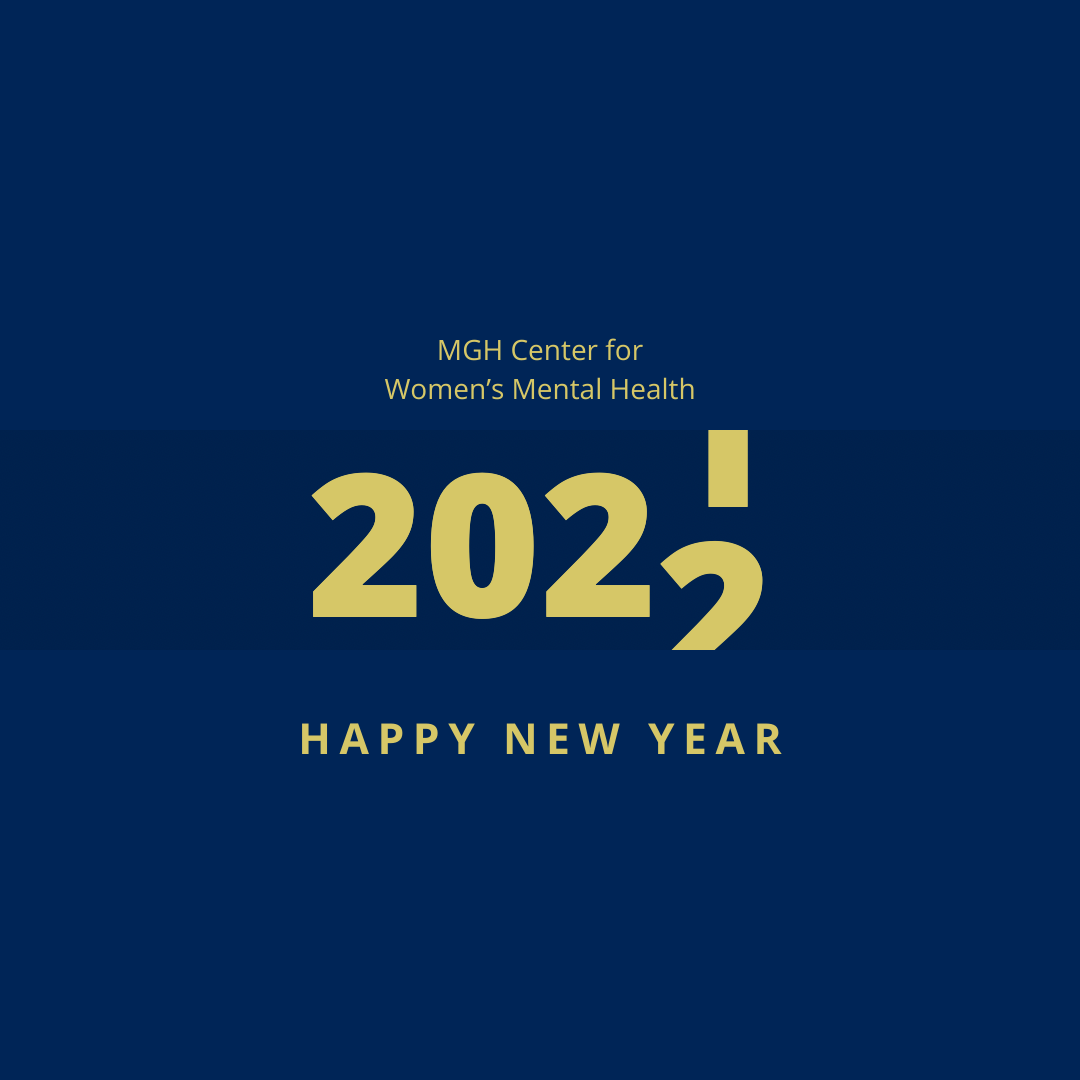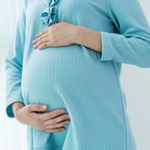It has been another difficult year. The pandemic has affected us all in some way, and in the midst of yet another COVID surge, it is difficult to imagine when and how we will be able to move forward. Although COVID-19 has been a huge focus in our personal and professional lives, the work we do at the Center continues to move forward. We have been able to provide ongoing clinical care to women with reproductive hormone-associated psychiatric disorders, have continued to pursue and launch new research projects in this population, and, in addition, have been able to expand the array of medical information and educational activities we offer to patients and our colleagues.
Here are some highlights from 2021.
Virtual Rounds at the MGH Center for Women’s Health
In March 2020, the Center went remote, and it’s hard to believe that, for the most part, we have not yet returned to the hospital. As a group we continue to meet virtually each week to discuss clinical cases and new research, and we have extended this format to include other clinicians around the country who are interested in reproductive psychiatry: Virtual Rounds at the Center for Women’s Mental Health.
Virtual Rounds are still going strong; every Wednesday we look forward to a lively discussion, and, at a time when we are all feeling disconnected, this meeting has strengthened our connections within this community. Virtual Rounds will continue into 2022. You can register HERE.
New Research Studies at the Center
In terms of research at the Center for Women’s Mental Health, we have some new studies that we are very excited about:
We are collaborating with the MIT Media Lab to design an app to deliver treatment (behavioral activation) for women with depression during pregnancy.
New Research Study: A Behavioral Activation App for Depression During Pregnancy
Another study is using the neurosteroid pregnenolone (similar to brexanolone) to treat women with menopausal depression:
New Research Study: Pregnenolone Neurosteroid for the Treatment of Menopausal Depression
Research at the Center: Reproductive Safety of Atypical Antipsychotic Medications
We continue to gather data on the use of atypical antipsychotic drugs during pregnancy as part of the National Pregnancy Registry for Atypical Antipsychotics. Over 2500 women have enrolled in this study. Our research complements the work of other groups which also suggests a low risk of adverse events associated with the use of the newer antipsychotic medications during pregnancy.
The National Pregnancy Registry for Atypical Antipsychotics continues to recruit pregnant women taking atypical antipsychotic medications. CALL TOLL-FREE to learn more 1-866-961-2388 or fill out this Patient Interest Form to be contacted by our research coordinator. All information is kept strictly confidential. Participation consists of three phone interviews.
Research at the Center: The MGH Postpartum Psychosis Project
In addition, we continue to enroll patients into the MGH Postpartum Psychosis Project, our MGHP3 Study. The purpose of the MGHP3 study is to better describe the risk factors and symptom patterns of postpartum psychosis and to examine the genetic contributions to risk for this disorder. The ultimate goal is to gather information so that we can provide evidence-based treatment to this vulnerable population. Thus far, we have enrolled 286 women who have experienced postpartum psychosis.
Toward a clearer risk model for postpartum psychosis
Women who have had an episode of postpartum psychosis are invited to participate in the study and may do so by contacting our site HERE or by filling out this contact form HERE.
In addition, medical providers caring for patients with postpartum psychosis may contact our consultation line.
Essential Reads in Reproductive Psychiatry
Last year, we also introduced a new section on our website: ESSENTIAL READS. This is a kind of shortcut which allows you to find the most relevant reviews and articles in reproductive psychiatry. Each Wednesday, we add a new article to the collection. In this section of our website, we will highlight the most up-to-date articles to help guide diagnosis, clinical decision-making, and treatment options. Here are some of our offerings:
Essential Reads: The Use of Sedative-Hypnotic Drugs During Pregnancy
Essential Reads: Who is at Risk for Depression During the Perimenopause?
Essential Reads: Recognizing Postpartum Psychosis
Essential Reads: Breastfeeding and ADHD Medications
Essential Reads: More Data on ADHD Medications and Pregnancy
COVID-19 and Perinatal Psychiatry
Much attention over the past year has focused on the impact of COVID-19 on pregnant and postpartum women. It is no surprise that perinatal women and those caring for young children have experienced an increase in their levels of stress, anxiety, and depression.
Lessons in perinatal psychology after 19 months of COVID-19
Why We Need to Discuss the COVID-19 Vaccine with Women of Childbearing Age
Higher Rates of Depression and Anxiety in Mothers Caring for Children at Home During the Pandemic
High Levels of Distress in Pregnant and Postpartum Women During the Pandemic
Increased Risk for Postpartum Psychosis During the COVID-19 Pandemic
And it should also be no surprise that organizations caring for this vulnerable population have stepped up to provide expanded and remote support services. For example, Postpartum Support International has many online support groups and launched a Peer Mentor Program.
On the Horizon: Another New Treatment for Postpartum Depression
There was much excitement about brexanolone (marketed as Zulresso), a novel treatment for postpartum depression. However, Zulresso must be administered as an intravenous infusion of the medication in a medically supervised setting. At this point, few centers offer this treatment. Zuranolone is an orally available version of brexanolone; it is effective for PPD but appears to have a more benign side effect profile than Zulresso. A new drug application will be submitted to the FDA later this year.
Essential Reads: Zuranolone for Postpartum Depression
A Better Understanding the Impact of Prenatal Exposure to Maternal Depression
While we focus on the risks to the developing fetus of exposure to psychotropic medications, we cannot ignore the impact of maternal depression.
Essential Reads: Measuring the Impact of Antenatal Depression on the Fetal Brain Using Neuroimaging
New Treatments for PMDD
There are few FDA-approved, effective treatments for PMDD. Several recent studies suggest that compounds which are related to progesterone or modulate progesterone receptors may have beneficial effects in women with PMDD.
A Novel Treatment for PMDD: Ulipristal Acetate, a Progesterone Receptor Modulator
Cannabis and Pregnancy
We are seeing an increasing number of women in our clinic who are using marijuana on a regular basis — recreationally and medically prescribed — to help them manage various psychiatric symptoms, including depression and anxiety. A growing body of literature indicates that cannabis may pose significant risks to the developing fetus.
Cannabis Use is Legal in Many States, But That Doesn’t Mean It’s Safe to Use During Pregnancy
Cannabis Use More Common Among Pregnant Women with Depression, Anxiety and Trauma
Essential Reads: Emerging Evidence of the Long-Term Effects of Cannabis on the Developing Brain
Some Things to Look Forward To in 2022
So many things to look forward to in the upcoming year… Unmasked faces, hanging out with friends and family, less anxiety, more reasons to be optimistic. The list is infinite. However, after a year marked by setbacks and disappointments, I think I will keep it simple. As I sit at my desk in frigid New England, I am looking forward to having warm toes.
Wishing you and your family a healthy New Year!
Ruta Nonacs, MD PhD








Leave A Comment